
Nachruf auf Jane Goodall: Sie sah den Menschen im Affen. (Giftlink)
02.10.2025 07:16 — 👍 4 🔁 1 💬 0 📌 0@frederikseelig.bsky.social
Medium-sized mammal. Interested in disease vectors & #VBDs 🦟🕷️🪰, #immunology, #GlobalHealth and #SciComm. Center Manager @civia-aarhus.bsky.social, previously Partnerships Manager for @globalvectorhub.bsky.social at @lshtm.bsky.social.

Nachruf auf Jane Goodall: Sie sah den Menschen im Affen. (Giftlink)
02.10.2025 07:16 — 👍 4 🔁 1 💬 0 📌 0
Nobelpreise für Medizin 2025 geht an Shimon Sakaguchi, Mary Brunkow & Fred Ramsdell für ihre bahnbrechenden Arbeiten zur peripheren Immuntoleranz. Gratulation 👏
#Tregs #Tolerance #FoxP3 #Nobel2025
Super Erklärstück dazu von @florianschumann.bsky.social @jasimmank.bsky.social @zeitonline.bsky.social

- Det er så stor en opdagelse, at de har gjort sig fortjent til at modtage #Nobelprisen, siger Søren Riis Paludan, @civia-aarhus.bsky.social til Politiken om de tre forskere, der netop har fået den højeste anerkendelse for opdagelsen af de regulatoriske #T-celler.
politiken.dk/viden/viden/...

📢 @who.int Disease #Outbreak News: #Chikungunya #virus disease - Global situation 3/10/2025 🦟
Until 30/9/2025, 445,271 suspected and confirmed CHIKV disease cases and 155 deaths were reported globally from 40 countries, including autochthonous and travel imported cases.
www.who.int/emergencies/...

📢 "Invasive #mosquito surveillance in the #UnitedKingdom 2020 to 2024: First detection of #Aedes aegypti eggs in the UK and further detection of Aedes albopictus 🦟" by Colin Johnston et al. @ukhsa.bsky.social published in @plosglobalpublichealth.org
journals.plos.org/globalpublic...
I get that the news cycle is packed right now, but I just heard from a colleague at the Smithsonian that this is fully a GIANT SQUID BEING EATEN BY A SPERM WHALE and it’s possibly the first ever confirmed video according to a friend at NOAA
10 YEAR OLD ME IS LOSING HER MIND (a thread 🧵)
Is this a different author from Paul de Kruif, who published "Microbe Hunters" in 1926? Molly Caldwell Crosby also gives a very vivid account in her book "The American Plague" (2006).
27.09.2025 22:05 — 👍 1 🔁 0 💬 1 📌 0
🦟 #Chikungunya: " #Mosquito-Borne Illness Rarely Seen in U.S. Is Suspected on #LongIsland. Chikungunya, which is endemic in parts of South America, Africa and Asia, may be the cause of a woman’s illness." by Joseph Goldstein via @nytimes.com
www.nytimes.com/2025/09/25/n...
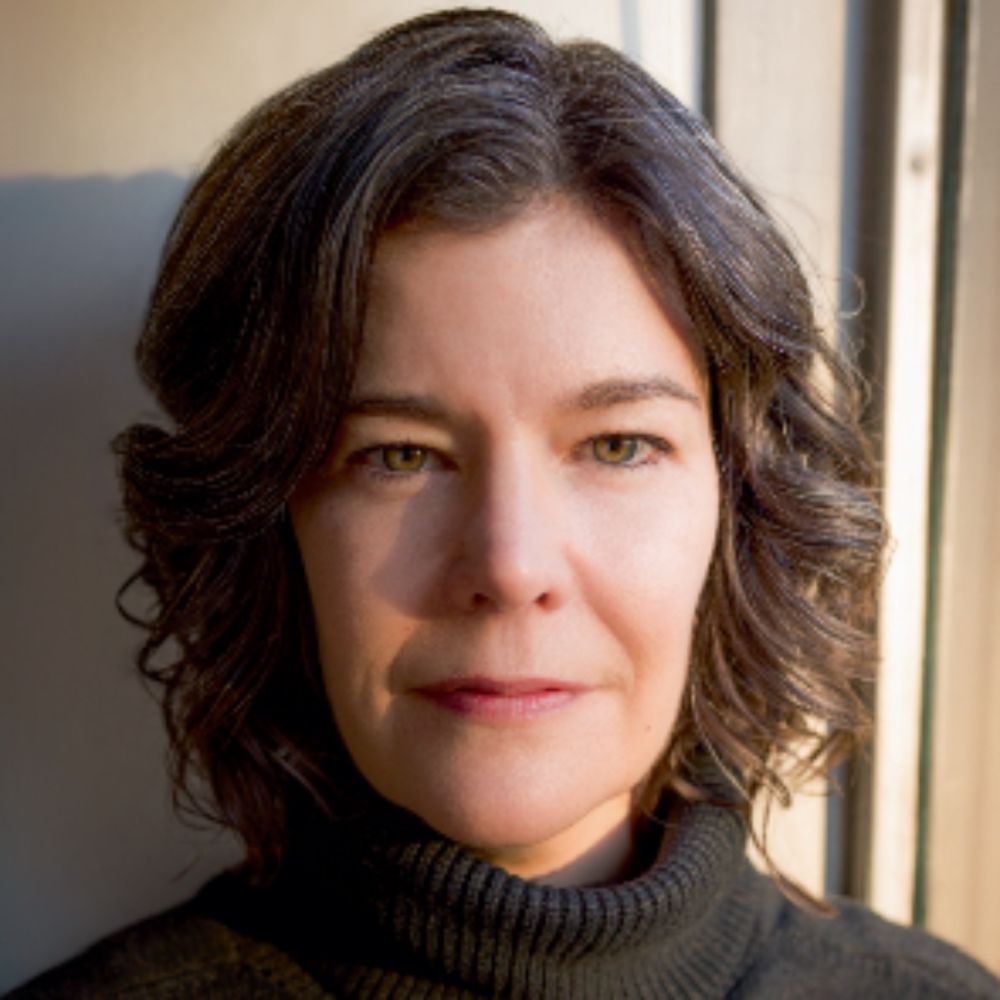
Fantastic piece in Nature Reviews Neuro by @nicolecrust.bsky.social on the importance of science communication. My take? Everything matters - just do something. It will make a difference for how science is valued and trusted, how community understands. Let's get out there and communicate! 👏
18.09.2025 17:01 — 👍 75 🔁 43 💬 2 📌 4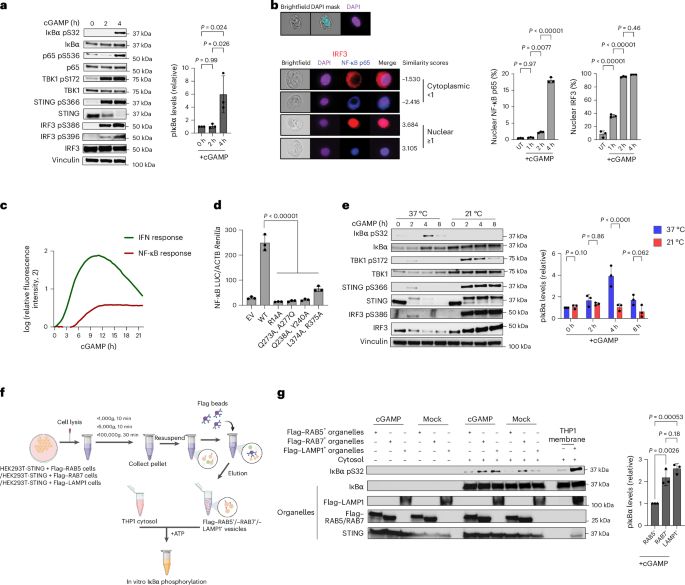
📢 #Publication alert! "STING signals to NF-κB from late endolysosomal compartments using IRF3 as an adaptor" by Bao-cun Zhan et al. in #Nature #Immunology, supported by @lundbeckfonden.bsky.social @dg.dk @novo-nordisk.bsky.social @erc.europa.eu
www.nature.com/articles/s41...
Hospitals ‘overflowing’ amid double outbreak of mosquito-borne disease in Bangladesh
Doris Nyamwaya tells the Telegraph urbanisation, #ClimateChange & travel are driving expansion of #mosquitoes in new regions amid surge of #dengue & #chikungunya cases.
www.telegraph.co.uk/global-healt...

New Spotlight alert! The bite that binds: #mosquito #saliva mediates #TLR2-driven #flavivirus infection, authored by Laura Willen & Fabiano Oliveira, highlighting Y. Matsuura, T. Okamoto & colleagues’ @cp-cellreports.bsky.social article. #immunomodulation
authors.elsevier.com/a/1llns5Eb1x...
Wohl eher Dawkins, nicht Darwin? 😊
15.09.2025 12:30 — 👍 6 🔁 0 💬 1 📌 0
📢 Great to see that the Public Health #Entomology Group (PHEG) at @lshtm.bsky.social now has a website! 🦟🪰🕷️🪳
www.lshtm.ac.uk/research/cen...

Exciting news! We’re thrilled to launch the European SOVE Education and Development Committee, to support #EarlyCareer researchers in the #SOVE with training, guides, and resources.
Want to stay updated?
- Join our mailing list: lnkd.in/euneQwF7
- Follow us on LinkedIn for updates and events!

Dengue disease severity in humans is augmented by waning Japanese encephalitis virus immunity
www.science.org/doi/10.1126/...
My family has been going on vacation on Walcheren for over 40 years, and it has a special place in our collective memory. This also includes the great museums, such as the one in Westkapelle.
10.09.2025 09:26 — 👍 1 🔁 0 💬 0 📌 0
Born #OnThisDay in 1907 was geologist and palaeontologist Professor Dorothy Hill FRS. She was the first female professor at an Australian university, the first female president of the Australian Academy of Science, and the first Australian woman to become Fellow of the Royal Society. #WomenInSTEM
10.09.2025 09:24 — 👍 41 🔁 18 💬 1 📌 0
Mosquito-borne viruses surge in a warming Europe
Chikungunya cases break records in France; West Nile virus appears near Rome
#Arbovirus #mosquito
What's driving major outbreaks of #chikungunya in new regions?
In this episode of LSHTM Viral Doris Kemunto discusses symptoms & strains of the #mosquito borne virus & growing #PublicHealth concerns that #ClimateChange could be a main cause.🎧
pod.link/1497329104/e...
Wasps are complex and extraordinary animals but are often misunderstood. Our new exhibition and immersive VR installations invite you to experience this hidden world. www.ucl.ac.uk/museums-coll... #GMZWasps
25.06.2025 10:28 — 👍 14 🔁 4 💬 1 📌 2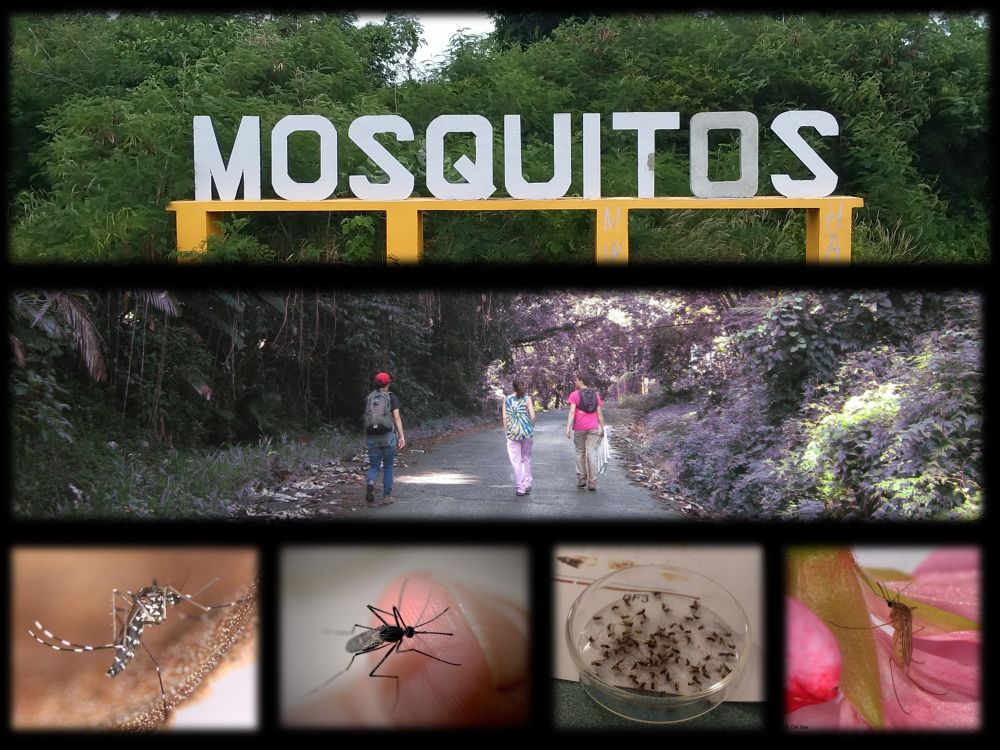
🦟🧪 ***I'm recruiting*** one student (M.S. or Ph.D.) to join my lab January 2026. Students need a 3.0 GPA and have an interest/experience in mosquito taxonomy, phenotypes, or ecology. Work on genetics/genomics is a plus. Deadline is 15 October 2025. US based students only. yeemosquitolab.org
24.04.2025 16:29 — 👍 24 🔁 19 💬 0 📌 1
🦟"That warm buzzy feeling: #malaria and #ClimateChange" via @economist.com "The Intelligence" #podcast
www.economist.com/podcasts/202...

So if #dingoes aren't #dogs but a different species, does that mean they're the Brassica cretica to the dogs' B. oleracea instead? Figure from Bryce et al. (2021) 🐩🥬
theconversation.com/dingoes-are-...
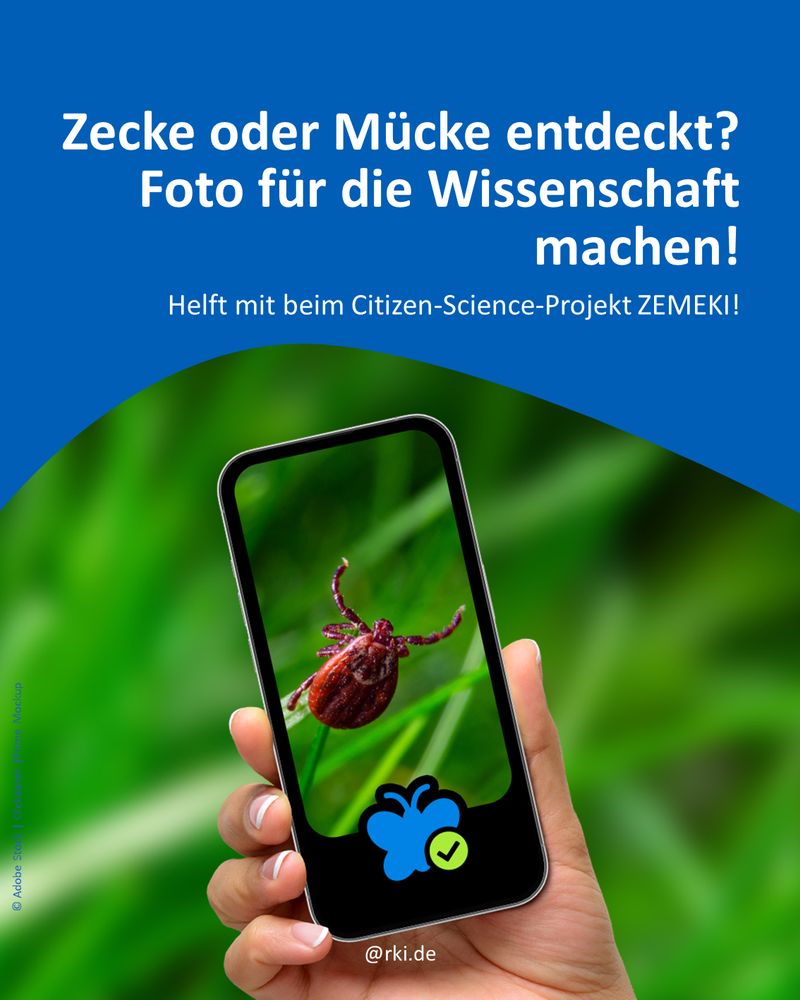
Eine Hand hält ein Smartphone, auf dessen Bildschirm eine Nahaufnahme einer Zecke auf einem Grashalm zu sehen ist. Darüber steht in weißer Schrift: „Zecke oder Mücke entdeckt? Foto für die Wissenschaft machen! Helft mit beim Citizen-Science-Projekt ZEMEKI!“ Das Bild wirbt für die Beteiligung am Forschungsprojekt ZEMEKI.
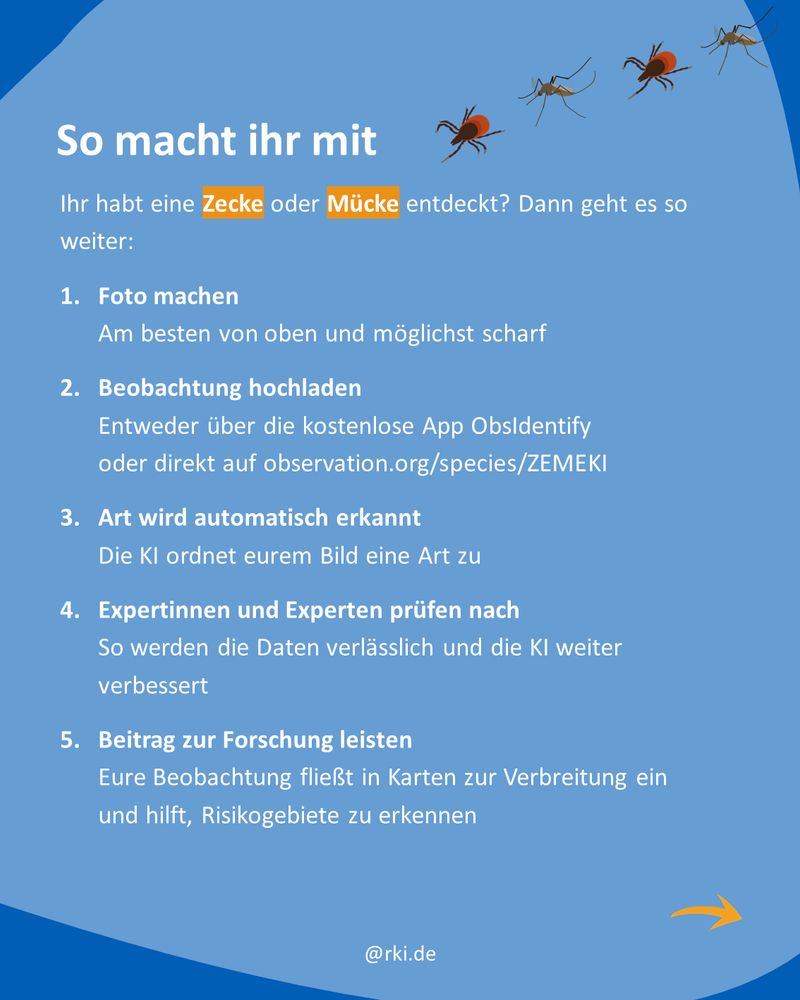
Anleitung zur Teilnahme am Citizen-Science-Projekt ZEMEKI. Überschrift: „So macht ihr mit“. Darunter eine Schritt-für-Schritt-Erklärung: 1. Foto machen, 2. Beobachtung hochladen, 3. Art wird automatisch erkannt, 4. Expertinnen und Experten prüfen nach, 5. Beitrag zur Forschung leisten. Am oberen Rand fliegen stilisierte Zecken und Mücken über das Bild.
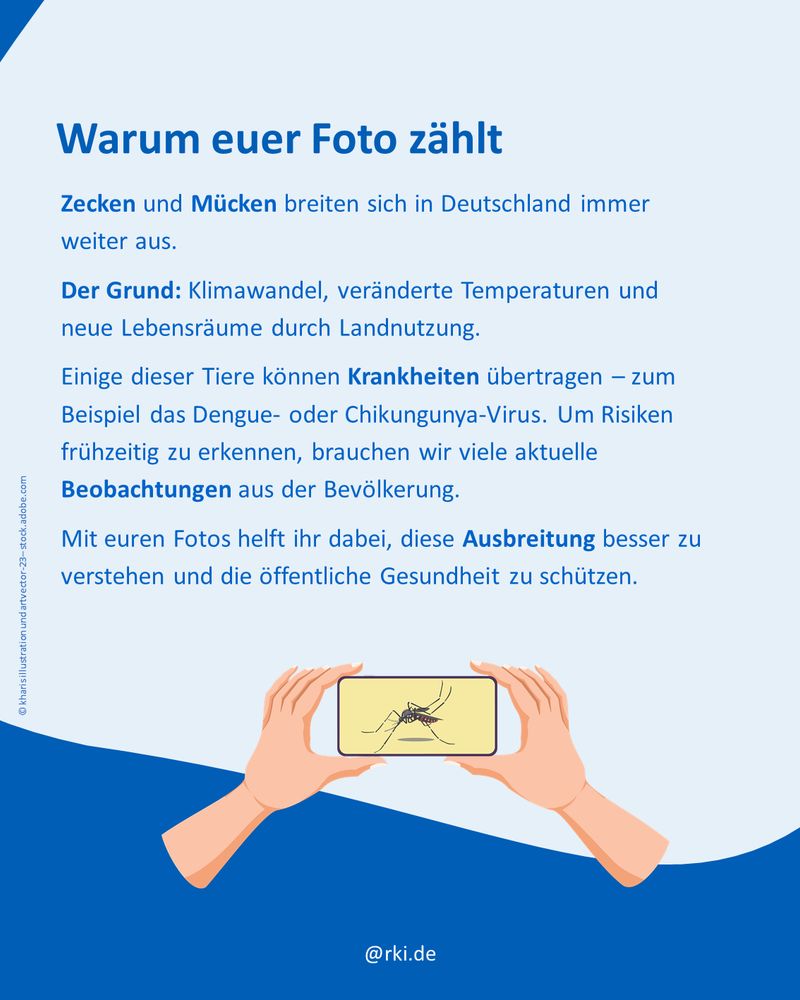
Infografik mit dem Titel „Warum euer Foto zählt“. Es wird erklärt, dass sich Zecken und Mücken in Deutschland ausbreiten – unter anderem durch Klimawandel und Landnutzung – und Krankheiten übertragen können. Fotos aus der Bevölkerung helfen, diese Ausbreitung zu verstehen und Risiken frühzeitig zu erkennen. Am unteren Rand ist eine Illustration von zwei Händen zu sehen, die ein Smartphone mit einem Mückenfoto halten.
Zecken und Mücken mit KI erkennen
Das neue Citizen-Science-Projekt #ZEMEKI braucht Fotos aus der Bevölkerung. KI-gestützte Analysen helfen, die Ausbreitung invasiver Arten wie der Asiatischen #Tigermücke früh zu erkennen.
Jetzt mitmachen: observation.org/species/ZEME...

Begleitet Fabian Leendertz in die faszinierende Welt der Zoonosen im Podcast vom Deutschlandfunk Kultur. Erfahrt, wie Tier- und Menschengesundheit verbunden sind und warum Zoonosen eine globale Herausforderung darstellen. Hört rein 🎧🌍
www.deutschlandfunkkultur.de/zoonosenfors...

🦟" #OneHealth approach uncovers emergence and dynamics of #Usutu and #WestNile viruses in the #Netherlands 🇳🇱" by @emmanuellemunger.bsky.social, @marionkoopmans.bsky.social et al. @erasmusmc.bsky.social in @natcomms.nature.com
www.nature.com/articles/s41...

🪰"Buffalo blood keeps me and the Serengeti alive: my week as a #tsetse fly" - love this column by Simon Barnes in @theobserveruk.bsky.social
observer.co.uk/news/columni...
🎙 Neue Folge “Pandemia”:
Indien und der Fluch der Flöhe
Der dritte Teil unserer Serie zur Pest ist da. Es geht um ein berühmtes Experiment, das so vermutlich nie stattgefunden hat. Eine Geschichte über Forschung, Fortschritt und Fälschung
🎧 Jetzt reinhören:
podcasts.apple.com/us/podcast/p...
In our ongoing podcast series on the 3rd plague pandemic, Laura and I are relying a lot on the work of Christos Lynteris
@visualplague.bsky.social, especially in the new episode on India, rats and fleas and Simond's famous experiment.
He has written a helpful thread with some sources here:
🧪 #IDsky